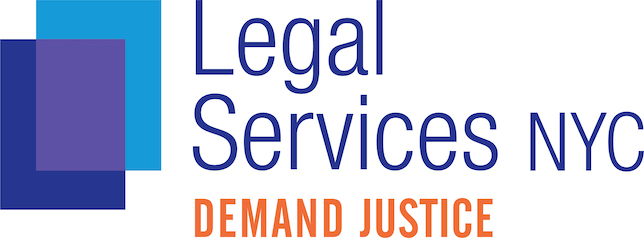October 20th, 2010— The New York State Court of Appeals yesterday handed down a major decision, significantly expanding the circumstances under which tenants can challenge the legality of their rents, In Grimm vs. State Division of Housing and Community Renewal, the Court ruled that tenants' allegations of rent overcharges are not subject to a four-year statute of limitations if there is an indication that fraud by landlords was involved. The tenant in this case was represented by Legal Services NYC Citywide Director of Housing Litigation and South Brooklyn Legal Services Director of Litigation Ed Josephson.
The four year limitation period has been used to prevent illegal rents from being challenged, regardless of how obviously fraudulent the rent setting scheme was. This decision is a significant victory for low income tenants, many of whom would otherwise be unable to challenge rents that have been illegally increased beyond their ability to pay.
"This ruling will allow DHCR to do what it is supposed to do, which is to prevent landlords from evading the rent laws, "said Ed Josephson. "There is no magic answer that will end fraud forever and ever, but this is one clear signal that the courts will not tolerate it and DHCR will not tolerate it any longer."
From the October 20th New York Law Journal (subscription only):
In Grimm, a bare majority of judges found the DHCR erred when it relied on the "base rent" charged to tenant Sylvie Grimm from the point four years before she complained it was too high and did not investigate allegations of landlord fraud on the unit's rental before then.
"Where the overcharge complaint alleges fraud, as here, DHCR has an obligation to ascertain whether the rent on the base date is a lawful rent," Judge Carmen Beauchamp Ciparick wrote for the majority in Grimm. "Accordingly, here, as the Appellate Division concluded, DHCR acted arbitrarily and capriciously in failing to meet that obligation where there existed substantial indicia of fraud on the record."
The decision affirmed last year's Appellate Division, First Department, ruling in Grimm v. State of New York Division of Housing & Community Renewal, 68 AD3d 29 (NYLJ, Sept. 28, 2009).
[...]
Rent Stabilization Law, §26-516, states that "no determination of an overcharge may be based upon an overcharge having occurred more than four years before the complaint is filed…. This paragraph shall preclude examination of the rental history of the housing accommodation prior to the four-year period preceding the filing of a [rent] complaint."
The majority of the Court ruled yesterday, however, that its subsequent decision in Thornton v. Baron, 5 NY3d 175 (2005), allowed investigation of units' rent history where fraud by landlords could be involved dating back further than four years. The DHCR argued that the Thornton exception should only apply to the fraud in that case— where a landlord created an illusory tenant who was not "using" a unit as a primary residence as a means of getting the apartment off the rent-stabilization rolls—and not to other instances of possible fraud.
The majority yesterday rejected that reasoning.
"As in Thornton, the rental history may be examined for the limited purpose of determining whether a fraudulent scheme to destabilize the apartment tainted the reliability of the rent on the base date," the majority ruled.



